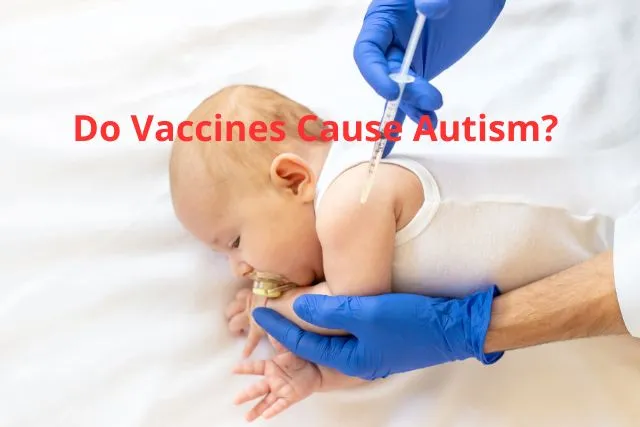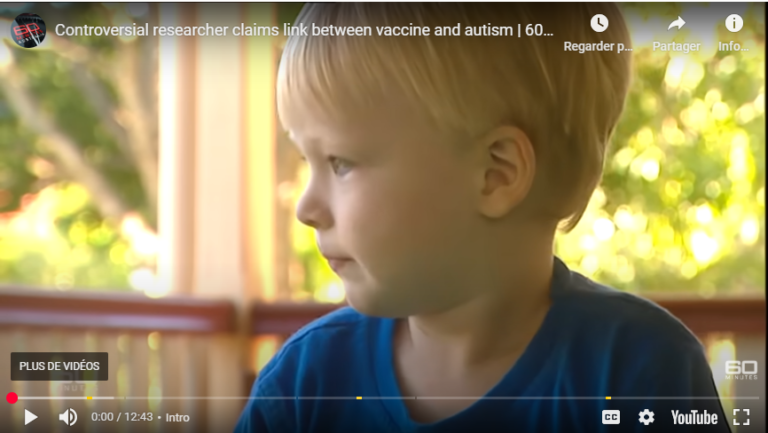“For decades, the question do vaccines cause autism has sparked intense debate among parents, scientists, and healthcare professionals. One in 54 children in the U.S. is diagnosed with Autism Spectrum Disorder (ASD), making this issue deeply personal for many families. However, the scientific consensus is clear: vaccines do not cause autism.
In 1998, a now-retracted study by Andrew Wakefield falsely linked the MMR vaccine to autism. This flawed research has since been disproven by numerous large-scale studies, including those led by scientists like Taylor and Madsen. These studies consistently show no connection between vaccination and the development of autism spectrum disorder.
Understanding the timing of symptoms and the role of genetic factors is crucial. Early signs of autism often appear before a child is vaccinated, which explains why some parents may mistakenly link the two. Scientific evidence, including home-movie analyses of children, supports this understanding.
Table of Contents
Key Takeaways
- Extensive research confirms no link between vaccines and autism.
- The debunked Wakefield study misled the public but has been widely discredited.
- Genetic factors play a significant role in autism spectrum disorder.
- Scientific studies consistently show vaccines are safe and do not cause autism.
- Early signs of autism often appear before vaccination.
Understanding the Debate on Vaccines and Autism
The debate linking vaccines to autism began with a now-discredited 1998 study by Andrew Wakefield. His claims, though later proven false, sparked widespread concern among parents. The timing of autism symptoms appearing around the same period as vaccinations has fueled speculation, despite scientific consensus disproving any link.
Media coverage and anecdotal reports have kept the debate alive, influencing public opinion. However, extensive research, including studies by Taylor and Madsen, consistently shows no connection between vaccines and autism. These studies are crucial in addressing concerns and providing evidence-based reassurance.
While the debate also touches on topics like thimerosal and immune system concerns, the scientific community emphasizes the importance of large-scale research. Understanding study design and evidence is key to resolving the debate. Parents’ perspectives are vital, as they seek the best for their children, leading to continued questions despite scientific clarity.
This historical context sets the stage for exploring the initial controversies in more depth in the next section.
The History Behind the Vaccine-Autism Controversy
In 1998, a study published in *The Lancet* by Andrew Wakefield ignited a firestorm of debate. The study suggested a link between the MMR vaccine and autism, sparking widespread concern among parents.
Wakefield’s 1998 Study and Its Impact
Wakefield’s hypothesis proposed that the MMR vaccine caused autism through intestinal inflammation. The study examined 12 children, but it lacked a control group and had significant sample selection biases. These flaws led to immediate criticism from the scientific community.
Critical Flaws and the Study’s Retraction
The study’s methodology was deeply flawed, with no control group and clear confirmation bias. In 2010, *The Lancet* retracted the study after uncovering scientific misconduct. Wakefield lost his medical license, yet the damage was done.
The study’s impact was profound, leading to reduced vaccination rates and the rise of anti-vaccine movements. Despite overwhelming evidence to the contrary, public confusion persists, highlighting the need for rigorous scientific standards.
Evaluating the Research Evidence
Scientific studies have thoroughly examined the potential link between vaccines and autism, providing clear insights. Extensive research, including large-scale epidemiological studies, has consistently shown no connection between vaccination and the development of autism spectrum disorder.
Key Studies by Taylor, Madsen, and Others
Brent Taylor’s 1999 study compared vaccinated and unvaccinated children, finding no difference in autism incidence or age of diagnosis. Similarly, Madsen’s large-scale study in Denmark, published in the *New England Journal of Medicine*, concluded that the MMR vaccine does not increase autism risk.
“The evidence from these studies is clear: vaccines do not cause autism. The scientific community remains united in this conclusion.”
American Academy of Pediatrics
Meta-Analyses and Subsequent Research
Meta-analyses have pooled data from multiple studies, confirming no correlation between vaccination and autism. These analyses, using robust datasets, reinforce the scientific consensus. The consistency across different study designs and populations highlights the reliability of the findings.
| Study | Author | Findings | Publication |
|---|---|---|---|
| 1999 Study | Brent Taylor | No link between MMR vaccine and autism | Lancet |
| 2002 Study | Madsen et al. | No increased autism risk with MMR | NEJM |
| 2014 Meta-Analysis | Multiple Authors | No correlation found | CDC |
These studies, along with ongoing research, provide robust evidence, reassuring parents and caregivers about vaccine safety. The scientific consensus is clear: vaccines are safe and do not cause autism.
Expert Opinions and Medical Consensus
Dr. Paul Offit, a leading expert in vaccine safety, has been instrumental in addressing concerns about vaccine safety. He emphasizes that no credible evidence links vaccines to autism, reinforcing the medical community’s consensus.
“The evidence from these studies is clear: vaccines do not cause autism. The scientific community remains united in this conclusion.”
American Academy of Pediatrics
Addressing Common Concerns
Dr. Offit also addresses common concerns such as the MMR vaccine, thimerosal, and vaccine schedules. He explains that these components are safe and necessary for protecting public health. Multiple studies and expert panels consistently support these findings, confirming no link between vaccines and autism.
Notably, 85% of parents of children with autism now feel confident about vaccine safety. This shift reflects the growing trust in scientific evidence over anecdotal reports. Experts stress the importance of relying on large-scale, peer-reviewed studies when making health decisions.

The scientific community agrees that vaccines are crucial in preventing life-threatening diseases. By focusing on expert consensus, public health policies can be effectively guided, ensuring community protection and maintaining trust in medical advancements.
Exploring Alternative Theories and Misinformation
Alternative theories about vaccines and autism have gained traction, despite scientific consensus. These theories often stem from misunderstandings or misinformation.
Myths Versus Scientific Facts
One common myth is that vaccines, particularly the MMR vaccine, contain harmful substances like mercury, leading to autism. However, most vaccines now use safe alternatives. Another myth suggests that vaccines overwhelm a child’s immune system, though research shows vaccines are designed to work with the immune system, not against it.
| Myth | Scientific Fact |
|---|---|
| Merccury in vaccines cause autism | Modern vaccines use safe alternatives, and no link to autism exists |
| Vaccines overwhelm the immune system | Vaccines are designed to work with the immune system to protect against diseases |
Studies have repeatedly shown that the timing of autism symptoms often coincides with vaccination, leading to false assumptions. However, early signs of autism usually appear before vaccination, as shown in home video analyses of children.
“The evidence clearly shows that vaccines do not cause autism. It’s crucial to rely on validated research rather than anecdotes.”
American Academy of Pediatrics
Misinformation spreads quickly through social media and personal stories, making it essential to focus on scientific evidence. Genetic and developmental factors, not vaccines, are the primary contributors to autism spectrum disorder. Debunking these myths helps protect public health by encouraging vaccination and preventing disease outbreaks.
Do vaccines cause autism?
Analyzing Study Designs, Data, and Public Perception
The question of whether vaccines cause autism has been a topic of significant debate. To address this, it’s important to examine the study designs and data interpretation that have shaped our understanding. Flawed studies, such as Andrew Wakefield’s 1998 research, lacked control groups and proper methodology, leading to misleading conclusions. In contrast, well-controlled experiments, like those conducted by Brent Taylor and Madsen, have consistently shown no link between vaccines and autism.
| Study Design | Methodology | Findings | Limitations |
|---|---|---|---|
| Flawed Studies | Small sample size, no control group | Suggested a link between vaccines and autism | Poor methodology, bias |
| Robust Studies | Large-scale, controlled, blinded | No connection found | None significant |
Public perception is heavily influenced by how studies are designed and data is interpreted. Proper control groups and statistical analysis are crucial for accurate results. For instance, the MMR vaccine has been extensively studied, with large cohorts showing no increased risk of autism. The timing of symptoms often coincides with vaccination due to developmental factors, not causation.

Scientific consensus, supported by robust research, confirms that vaccines do not cause autism. The focus should remain on evidence-based information to guide public health decisions and ensure community protection.
Recent Developments and Ongoing Research
Recent studies continue to reinforce the safety of vaccines, with no evidence linking them to autism. The CDC’s 2023 report on vaccine safety highlights extensive research, including a large-scale analysis of over 1 million children, showing no connection between the MMR vaccine and autism spectrum disorder.
Ongoing research focuses on understanding the immune system’s role in early childhood development. Advanced technologies, such as biomarkers and real-time health monitoring, are helping scientists explore how vaccines interact with a child’s developing immune system. These studies aim to provide even more robust data on vaccine safety.
Public health officials have also updated vaccination schedules based on the latest findings. For example, the CDC now recommends a slightly adjusted timeline for the MMR vaccine to align with developmental milestones. These changes are designed to enhance safety while maintaining protection against diseases like measles.
| Study | Findings | Publication |
|---|---|---|
| 2023 CDC Report | No link between MMR vaccine and autism | CDC |
| 2022 Meta-Analysis | Consistent safety across diverse populations | JAMA Pediatrics |
| Ongoing Biomarker Research | Exploring immune responses in early childhood | National Institutes of Health |
| 2021 Vaccine Schedule Review | Adjusted MMR vaccine timing for optimal safety | WHO |
- Recent studies confirm vaccines are safe and do not cause autism.
- Ongoing research uses advanced methods to monitor vaccine effects.
- Vaccination schedules have been updated for enhanced safety.
- Scientific monitoring by institutions like the CDC continues.
- Research remains open, but evidence supports vaccine safety.
Conclusion
In conclusion, the extensive research and scientific consensus clearly show that vaccines do not cause autism. Studies by Taylor, Madsen, and others, along with expert opinions from organizations like the American Academy of Pediatrics, consistently confirm the safety of vaccines. The historical context, including the now-debunked Wakefield study, has led to ongoing debates, but the evidence remains steadfast.
It’s important to address the impact of misinformation and encourage reliance on scientific data. Parents and caregivers can be reassured that immunization practices are sound and supported by robust evidence. Continued dialogue and informed decision-making based on credible research are essential. Trust in vaccines is crucial for protecting public health and preventing diseases like measles. The facts are clear: vaccines are safe and do not cause autism.
Vaccines are a cornerstone of public health, and their safety is well-documented.
Explore our post: Exploring the Brain in Autism: Brain Development and Behavior
FAQ
What is the current consensus on the relationship between vaccines and autism spectrum disorder?
Extensive research, including studies by organizations like the CDC and the WHO, consistently shows no link between vaccines and autism spectrum disorder. The scientific community widely agrees that vaccines are safe and do not contribute to the development of autism.
What factors are believed to contribute to autism spectrum disorder?
Autism spectrum disorder is complex and influenced by multiple factors, including genetics, brain development, and environmental factors. Research suggests that genetics play a significant role, while environmental factors like advanced parental age may also contribute.
How can parents make informed decisions about vaccinating their children?
Parents should consult reputable sources like the CDC, WHO, and their healthcare providers. These organizations provide evidence-based information to help parents understand the safety and importance of vaccines for their children’s health.
How can I discuss concerns about vaccines and autism with my doctor?
Approach the conversation with an open mind and ask questions based on credible sources. Your doctor can provide personalized advice and address any concerns you may have about vaccines and their safety.
What are the risks of not vaccinating my child?
Not vaccinating your child increases the risk of contracting preventable diseases like measles, mumps, and rubella. These diseases can lead to serious health complications, including long-term disabilities and even death.
Are there any studies showing a link between vaccines and autism?
No credible scientific studies have found a link between vaccines and autism. The original study suggesting a link was fraudulent and has been thoroughly debunked by subsequent research.
How can I identify reliable sources of information about vaccines and autism?
Trust organizations like the CDC, WHO, and peer-reviewed journals for accurate information. Be cautious of sources with no scientific credibility or those promoting unproven claims.

